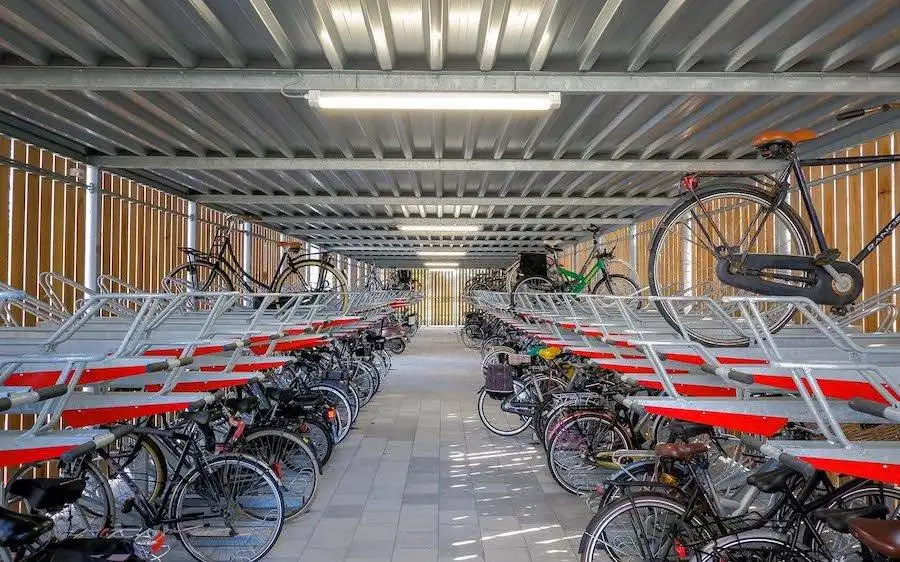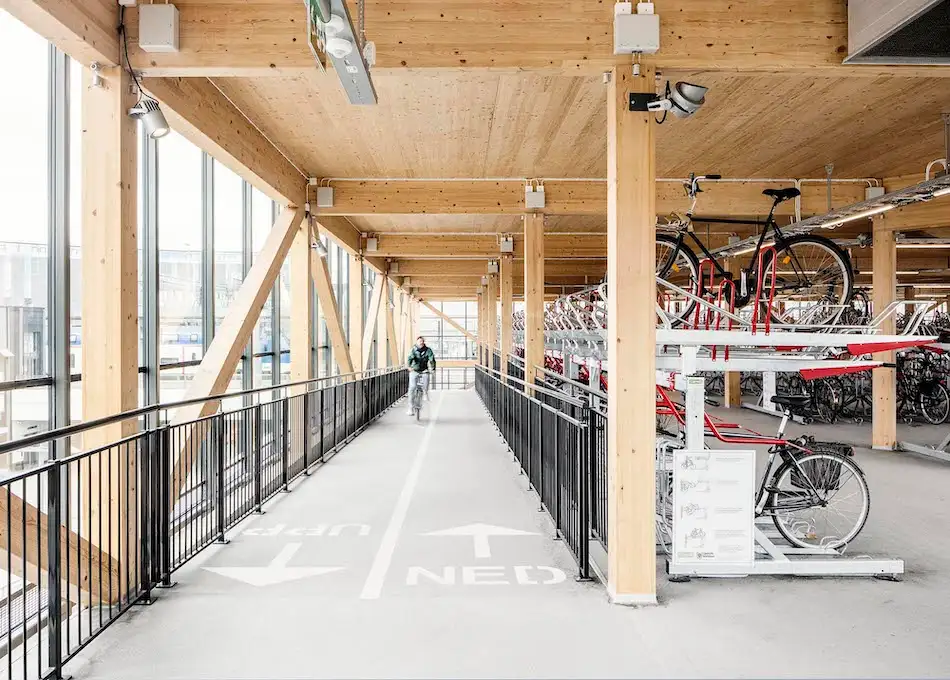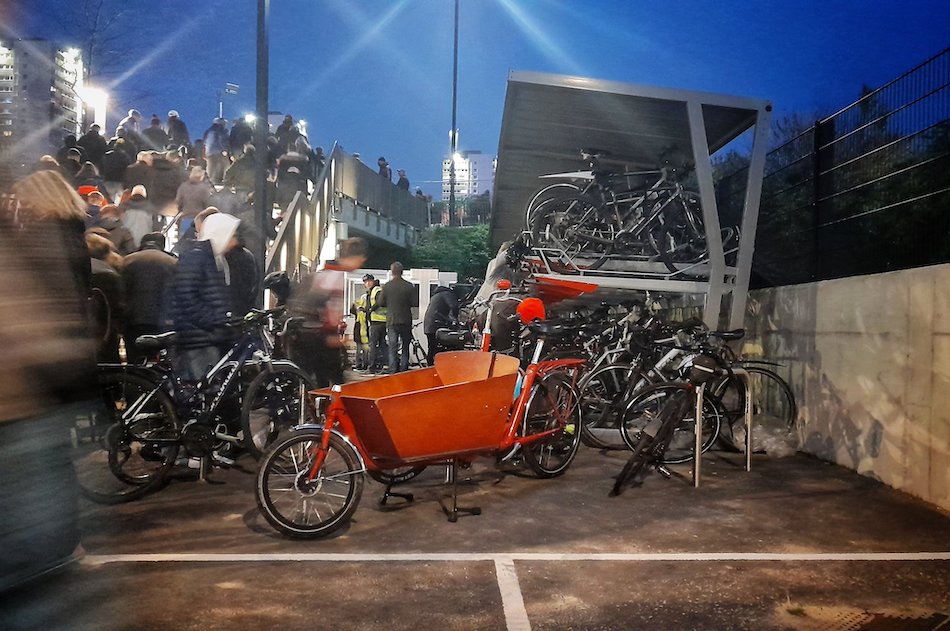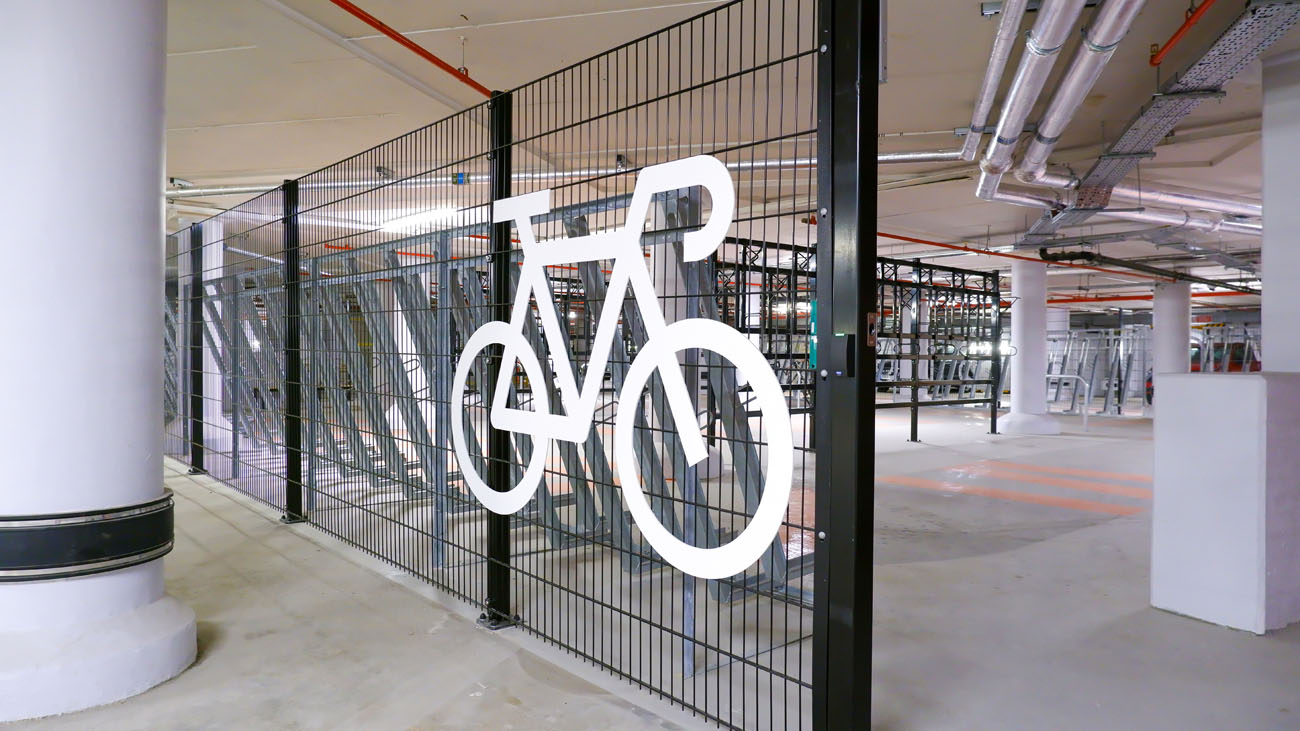4. More accessible and cargo bike spaces
Last year, charity Wheels for Wellbeing told us just how important non-standard cycle parking spaces are for disabled cyclists. Add to this a rising number of cargo bike sales and there is a clear new demand for accessible cycle parking spaces.
We’ve already seen cargo bike hire scheme trials last year across a couple of London boroughs, with bikes being stored in bespoke hangers. Commercial use – particularly as a quicker alternative for last-mile deliveries – is where cargo bike sales are increasing at the greatest pace, however.
This means that within large bike stores and incorporated into public parking, it needs to be ensured there is sufficient provision for non-standard spaces, correctly labelled for accessible and cargo bike usage.
5. Addressing electric micromobility
E-scooters remain both contentious but, as we see it, an important and exciting sector.
Rental schemes which began last year in London have faced uncertainty pending the success of trials. Private use remains illegal on UK roads – despite record sales growth – only adding to confusion.
From an environmental perspective it remains to be seen if e-scooter journeys are replacing car use, or just replacing walking and other active travel means. It is this crucial distinction that will likely help inform government policy change on the matter.
Yet, despite this uncertainty, there can be little doubt that e-scooters are here to stay and certainly have great potential to reduce car congestion and pollution.
Much like e-bikes, it is logical to offer charging points integrated with racks and docking stations. It’s both a neat solution to reducing e-scooters in residential corridors and office desks, while offering charging for end-users too.
We’re already seeing larger commercial developments include both e-bike charging and e-scooter docking stations. This is likely to expand as it provides a surefire way of ensuring future growth in e-scooter and e-bike infrastructure is met.
As ever, Turvec’s team pays close attention to all developments within both cycle parking and the wider active travel landscape in the UK. We believe that this knowledge is critical for working with our clients to deliver the most cost-effective and high-class projects.








